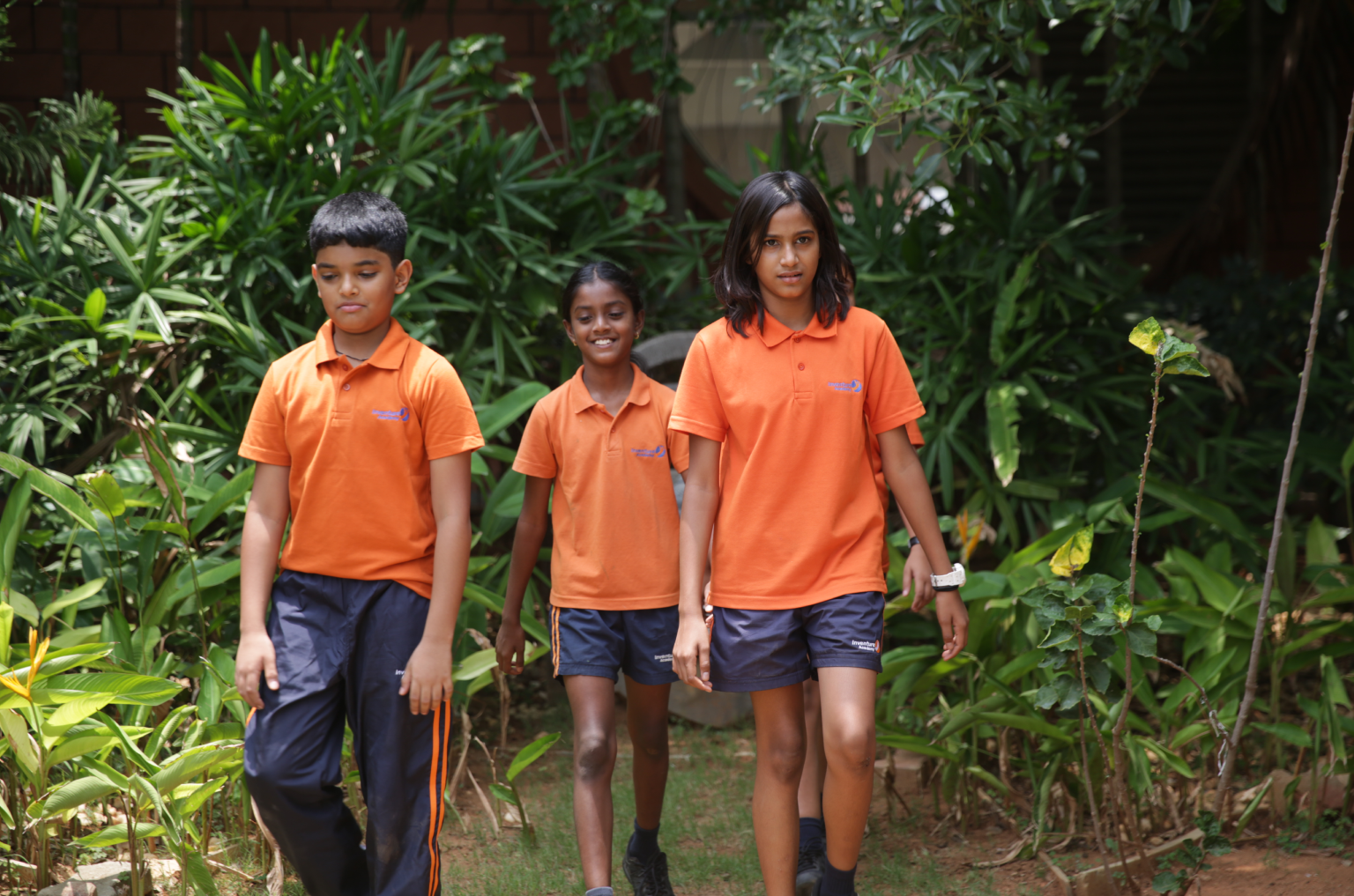At Inventure Academy, science comes alive through immersive learning. Whether it’s learning about gut health, understanding the silk production process, or conducting yeast-based biology experiments, students are given the space to ask questions, explore, and connect with the world around them. The recent Biology Immersive Learning Programfor Grades 6 and 8 reflects this hands-on, inquiry-led approach.
Table of Contents
ToggleGrade 6 - Biology Immersive Learning Experience
Student Reflections on the Experience
Grade 6 students dove into the world of microorganisms, food science, and gut health through a series of interactive sessions and activities. They were mentored by Anthony Sir, whose engaging and supportive teaching made a lasting impression.
Learning with Anthony Sir
From the very beginning, students described their immersive biology experience as “fun,” “exciting,” and “supportive.” They appreciated Anthony Sir’s ability to explain concepts clearly, guide hands-on activities, and create a positive learning environment.
“He is really encouraging and makes everything so enjoyable!” — Vir Sachdeva
“I hope he’ll teach me again. He is an awesome teacher.” — Aniket Jha
Experiments and Activities
The highlight of the program was the Balloon Yeast Experiment, where students observed how sugar and yeast react to produce carbon dioxide and alcohol. Students also participated in a kombucha-tasting session during a guest lecture on gut health, combining science with real-world health applications.
“We inflated a balloon using only sugar and yeast—it was amazing!” — Eklavya
“We loved learning about kombucha and how microbes affect gut health.” — Taanish
Field Trip Experiences
To connect the science of food to real-world processes, students visited Carnival Bakery, where they saw how bread is made and how fermentation plays a role in the baking process.
“It was fun watching a bakery work behind the scenes. I learned so much about how bread rises!” — Divit Gupta
Grade 8 - Biology Immersive Learning Experience
Grade 8 students explored sericulture, Bombyx Mori, and the cultural significance of silk production in India. They visited a mulberry farm, participated in debates, and listened to expert guest lectures.
Group 8A: Aarnav, Krishiv, Abhyuday, and Dev
- Engaged in a lively debate on silk production and selective breeding.
- Explored plants used in silk production during the farm visit.
- Learned about the different types of silk in a session with Anju Ma’am.
Group 8B: Nabhiya, Ayaan, and Dhvij
- Shared reflections on visiting a farmhouse and connecting their learning with village life and Wider World identity.
Group 8C: Nithila, Ravnoor, and Anusha
- Discovered how perspectives on Bombyx Mori vary and how debates helped them appreciate both sides of the issue.
- Emphasized the value of new experiences, including understanding silkworm lifecycles.
Group 8D: Arvee, Asees, Teisha, Sanjay, and Abhay
- Reflected on how their opinions shifted. Initially opposed to silk production, they now recognized its economic importance, job creation potential, and cultural value.
YPR Grade 8: Vaishnavi Jain
- Shared a comprehensive account of silk weaving as both a science and a tradition.
- Discussed how a ban on silk could affect local communities, traditional craftsmanship, and regional economies.
- Reflected on how the immersive experience gave her a deeper appreciation of cultural identity and economic sustainability.
“The connection between the industry and culture is so much stronger than I initially realized.” — Vaishnavi Jain
Conclusion
This biology immersive learning journey was not just about facts or diagrams—it was about doing, seeing, tasting, and feeling science in action. Through guest lectures Why Educational Trips Matter, field trips, debates, and experiments, students walked away with a deeper understanding of biology and its applications in health, sustainability, and society.
Explore more learning journeys and real-world connections at Inventure Academy:
🔗 Why Educational Trips Matter
🔗 Field Trip
🔗 Wider World



